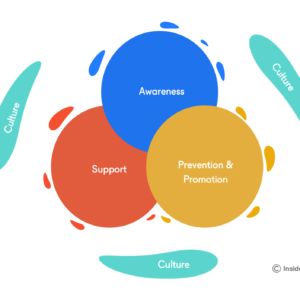Blockchain technology is revolutionizing the way businesses approach compliance and regulatory audits. By leveraging blockchain for compliance, companies can streamline processes, reduce costs, and improve transparency. Regulatory compliance using blockchain is becoming increasingly important as regulatory bodies recognize its potential in ensuring data integrity and security.
The use of blockchain for compliance is a game-changer for industries facing stringent regulatory requirements. Blockchain for compliance enables businesses to harness the power of blockchain technology to enhance compliance and regulatory audits. As regulatory bodies begin to recognize the potential of blockchain, it is essential for businesses to understand the basics of blockchain and its applications in regulatory compliance using blockchain.
Introduction to Blockchain for Compliance
Blockchain technology has the potential to transform the way businesses approach compliance and regulatory audits. With its ability to provide transparent, secure, and tamper-proof data, blockchain for compliance is an attractive solution for businesses looking to improve their compliance processes. Regulatory compliance using blockchain can help businesses reduce the risk of non-compliance and improve their overall efficiency.
Key Takeaways
- Blockchain technology can enhance compliance and regulatory audits
- Blockchain for compliance can improve transparency and security
- Regulatory compliance using blockchain can reduce the risk of non-compliance
- Blockchain technology can help businesses streamline compliance processes
- Blockchain for compliance is becoming increasingly important for industries with stringent regulatory requirements
- Understanding the basics of blockchain is essential for businesses to leverage its potential in regulatory compliance using blockchain
Understanding Blockchain Technology in Compliance
Blockchain technology has been gaining traction in recent years, and its potential for regulatory compliance is vast. By leveraging blockchain technology for regulatory compliance, businesses can ensure transparency and accountability in their operations. Compliance solutions with blockchain can help companies streamline their compliance processes, reducing the risk of non-compliance and associated costs.
The key to understanding blockchain technology lies in its decentralized nature and use of cryptographic algorithms for security. This enables the creation of a distributed ledger, where all transactions are recorded and verified by a network of nodes. Decentralization is a critical aspect of blockchain, as it allows for a trustless and transparent environment, where all parties can trust the integrity of the data.
Some of the benefits of using blockchain technology for compliance include:
- Immutable record-keeping, ensuring that all transactions are tamper-proof
- Real-time data access, enabling companies to respond quickly to changing regulatory requirements
- Enhanced transparency, providing a clear audit trail of all transactions and activities
By adopting compliance solutions with blockchain, businesses can improve their overall compliance posture and reduce the risk of non-compliance. As the use of blockchain technology for regulatory compliance continues to grow, it is essential for companies to stay ahead of the curve and explore the potential benefits of this innovative technology.
| Benefits | Description |
|---|---|
| Immutable Record-Keeping | Ensures that all transactions are tamper-proof and cannot be altered |
| Real-Time Data Access | Enables companies to respond quickly to changing regulatory requirements |
| Enhanced Transparency | Provides a clear audit trail of all transactions and activities |
The Importance of Compliance in Business
Compliance is a critical aspect of business operations, especially in heavily regulated industries. In the United States, businesses must navigate a complex regulatory framework to ensure they are meeting all necessary requirements. The benefits of blockchain for regulatory compliance can help businesses streamline their compliance efforts, reducing the risk of non-compliance and associated costs.
A robust compliance program is essential for businesses to avoid the significant costs associated with non-compliance. These costs can include fines, legal fees, and damage to a company’s reputation. By implementing a compliance program that incorporates blockchain and compliance management, businesses can proactively manage their regulatory obligations and reduce the risk of non-compliance.
Some key benefits of a compliance program include:
- Reduced risk of non-compliance and associated costs
- Improved reputation and credibility
- Enhanced transparency and accountability
- Streamlined compliance efforts through the use of blockchain technology
By understanding the importance of compliance and the challenges businesses face, readers can appreciate how blockchain technology can offer a proactive and effective solution. The benefits of blockchain for regulatory compliance, combined with effective compliance management, can help businesses navigate the complex regulatory landscape and reduce the risk of non-compliance.
Blockchain’s Potential for Regulatory Audits
As businesses navigate the complex landscape of regulatory audits, they are increasingly turning to blockchain technology to enhance transparency and ensure compliance. By leveraging blockchain, companies can create a tamper-proof and transparent record of their data, making it easier to demonstrate compliance with regulatory requirements. This is particularly important in industries where blockchain regulations and compliance are stringent, such as finance and healthcare.
The use of blockchain in regulatory audits offers several benefits, including:
- Immutable record-keeping, which ensures that data cannot be altered or deleted
- Enhanced transparency, which allows regulators to easily access and verify data
- Improved efficiency, which reduces the time and cost associated with audits
By ensuring compliance with blockchain technology, businesses can reduce the risk of non-compliance and minimize the costs associated with regulatory audits. As the use of blockchain in regulatory audits continues to grow, it is likely that we will see increased adoption of this technology across various industries, leading to a more transparent and compliant business environment. With the right blockchain regulations and compliance framework in place, companies can harness the power of blockchain to streamline their regulatory audits and improve their overall compliance posture.
How Blockchain Improves Data Integrity
Data integrity is crucial for businesses, especially when it comes to compliance and regulatory audits. Blockchain technology plays a significant role in enhancing data integrity by reducing human error and providing real-time data access. By leveraging blockchain for legal compliance, companies can ensure that their data is accurate, reliable, and tamper-proof.
The use of blockchain for compliance enables businesses to automate data entry and validation processes, minimizing the chance for human mistakes. This, in turn, ensures that data is accurate and reliable, which is essential for compliance and regulatory audits. With blockchain, companies can also provide real-time data access, enabling them to respond quickly to changes or discrepancies and further enhancing data integrity.
Key Benefits of Blockchain for Data Integrity
- Reduced human error: Blockchain automates data entry and validation processes, minimizing the chance for mistakes.
- Real-time data access: Blockchain provides real-time data access, enabling businesses to respond quickly to changes or discrepancies.
- Immutable record-keeping: Blockchain’s immutable nature ensures that data is tamper-proof and cannot be altered or deleted.
By implementing blockchain for compliance, businesses can improve data integrity, reduce the risk of non-compliance, and enhance their overall regulatory posture. As a result, blockchain for legal compliance is becoming an increasingly important tool for companies looking to streamline their compliance processes and ensure the integrity of their data. With its ability to provide real-time data access and reduce human error, blockchain is an ideal solution for businesses seeking to improve their compliance and regulatory audit processes.
Enhancing Security with Blockchain
Security is a critical component of compliance, and blockchain offers robust security features that can protect sensitive data. By utilizing blockchain, businesses can significantly reduce the risk of data breaches and cyberattacks, ensuring the confidentiality, integrity, and availability of their data. This is essential for regulatory compliance using blockchain, as it provides a secure and transparent way to store and manage data.
The use of blockchain technology for regulatory compliance can provide numerous benefits, including enhanced security features and protection against data breaches. Some of the key security features of blockchain include:
- Immutable record-keeping, which ensures that data cannot be altered or deleted
- Cryptographic security features, such as encryption and digital signatures, which protect data from unauthorized access
- Decentralized storage, which reduces the risk of data breaches and cyberattacks
By leveraging these security features, businesses can ensure that their data is protected and compliant with regulatory requirements. This can help to build trust with customers and stakeholders, and reduce the risk of non-compliance and associated penalties.
In addition to enhancing security, blockchain technology for regulatory compliance can also provide real-time monitoring and reporting, which can help businesses to identify and address potential compliance issues quickly and efficiently. This can help to reduce the risk of non-compliance and associated penalties, and ensure that businesses are able to operate with confidence and integrity.
Case Studies: Blockchain in Action
Blockchain technology has been successfully implemented in various industries to enhance compliance and regulatory frameworks. By leveraging compliance solutions with blockchain, companies can improve transparency, reduce costs, and increase efficiency. The benefits of blockchain for regulatory compliance are numerous, and real-world examples demonstrate its effectiveness.
In the financial sector, blockchain-based compliance solutions have been used to enhance anti-money laundering (AML) and know-your-customer (KYC) regulations. For instance, Bank of America has implemented a blockchain-based platform to improve compliance with AML regulations. Similarly, in the healthcare industry, blockchain-based compliance solutions have been used to secure patient data and ensure compliance with the Health Insurance Portability and Accountability Act (HIPAA).
Some notable examples of blockchain implementation include:
- Financial sector: JPMorgan Chase has developed a blockchain-based platform to improve compliance with regulatory requirements.
- Healthcare: Medibloc has implemented a blockchain-based platform to secure patient data and ensure compliance with HIPAA regulations.
- Supply chain management: Walmart has used blockchain technology to improve supply chain transparency and compliance with food safety regulations.
These case studies demonstrate the versatility and effectiveness of blockchain in enhancing compliance and regulatory frameworks. By adopting compliance solutions with blockchain, companies can reap the benefits of blockchain for regulatory compliance, including improved transparency, reduced costs, and increased efficiency.
| Industry | Company | Blockchain Implementation |
|---|---|---|
| Financial | Bank of America | Blockchain-based AML platform |
| Healthcare | Medibloc | Blockchain-based patient data security |
| Supply Chain | Walmart | Blockchain-based supply chain transparency |
Smart Contracts and Compliance Automation
Blockchain technology has the potential to revolutionize compliance management by introducing smart contracts. These self-executing contracts with the terms of the agreement written directly into lines of code can automate compliance processes, reducing the need for manual intervention and associated risks of human error. By leveraging smart contracts, businesses can streamline their compliance management, ensuring adherence to blockchain regulations and compliance requirements.
Smart contracts can be used to automate various compliance tasks, such as data validation, reporting, and auditing. This can help businesses reduce the costs and complexities associated with compliance management, while also improving the accuracy and efficiency of compliance processes. For instance, smart contracts can be used to automate the reporting of transactions, ensuring that all transactions are properly recorded and reported to the relevant authorities.
Some of the key benefits of using smart contracts for compliance automation include:
- Improved accuracy and efficiency of compliance processes
- Reduced costs and complexities associated with compliance management
- Enhanced transparency and accountability
- Automated reporting and auditing
Overall, the use of smart contracts for compliance automation has the potential to transform the way businesses approach blockchain and compliance management. By automating compliance processes and reducing the need for manual intervention, businesses can improve the efficiency and effectiveness of their compliance programs, while also reducing the risks associated with non-compliance.
Challenges of Implementing Blockchain for Compliance
As businesses consider adopting blockchain for compliance, they must be aware of the potential challenges that come with it. Ensuring compliance with blockchain technology requires careful planning and execution. One of the primary concerns is the technical hurdles that may arise during implementation. For instance, integrating blockchain with existing systems can be complex, and ensuring that all stakeholders are on board with the new technology can be a daunting task.
Another significant challenge is regulatory uncertainty. While blockchain for legal compliance is becoming increasingly popular, there is still a lack of clear guidelines and regulations surrounding its use. This can make it difficult for businesses to navigate the legal landscape and ensure that they are meeting all necessary requirements. Resistance to change is also a common obstacle, as some employees may be hesitant to adopt new technologies and processes.
Some of the key challenges associated with implementing blockchain for compliance include:
- Technical difficulties with integration and scalability
- Regulatory uncertainty and lack of clear guidelines
- Resistance to change from employees and stakeholders
- High upfront costs associated with implementation
Despite these challenges, many businesses are finding that the benefits of blockchain for compliance far outweigh the costs. By understanding the potential hurdles and developing strategies to overcome them, companies can ensure a smooth transition to blockchain-based compliance systems, ultimately ensuring compliance with blockchain technology and reaping the rewards of increased efficiency and security.
Future Trends in Blockchain for Compliance
As blockchain technology continues to evolve, its potential to transform regulatory compliance is becoming increasingly evident. The use of blockchain for compliance is expected to grow, with more industries adopting this technology to enhance transparency and security. Regulatory compliance using blockchain is becoming a key area of focus, as it enables companies to maintain accurate and tamper-proof records, reducing the risk of non-compliance.
The integration of blockchain with other emerging technologies, such as artificial intelligence and the Internet of Things, is also expected to drive growth in the use of blockchain for compliance. This integration will enable companies to automate compliance processes, reducing the risk of human error and increasing efficiency. Some of the key trends to watch in the future of blockchain for compliance include:
- Growing adoption across industries, including finance, healthcare, and supply chain management
- Potential regulatory changes that may impact the use of blockchain for compliance
- Increased focus on blockchain for compliance as a key area of investment and development
By staying ahead of these trends and investing in blockchain technology, companies can position themselves for success in a rapidly changing regulatory landscape. The use of blockchain for compliance is expected to continue to grow, driven by the need for greater transparency, security, and efficiency in regulatory compliance.
Cost Considerations of Blockchain Solutions
Implementing blockchain technology for regulatory compliance can seem like a costly endeavor, but it’s essential to consider the long-term benefits. Compliance solutions with blockchain can lead to significant savings by reducing the need for manual data entry, minimizing errors, and increasing efficiency. When evaluating the cost of blockchain solutions, it’s crucial to weigh the initial investment against the potential long-term savings.
A key factor to consider is the cost-benefit analysis of adopting blockchain for compliance. This involves calculating the potential return on investment by comparing the costs of implementation to the expected benefits, such as reduced compliance costs and enhanced efficiency. By leveraging blockchain technology for regulatory compliance, businesses can streamline their compliance processes, reducing the risk of non-compliance and associated penalties.
Initial Investment vs. Long-Term Savings
The initial investment in blockchain solutions may seem substantial, but it can lead to significant long-term savings. Some of the benefits of compliance solutions with blockchain include:
- Reduced compliance costs
- Increased efficiency
- Improved data integrity
- Enhanced security
By considering these factors and conducting a thorough cost-benefit analysis, businesses can make informed decisions about adopting blockchain technology for regulatory compliance and compliance solutions with blockchain.
Conclusion: The Future of Compliance in a Blockchain World
As we have explored, blockchain technology holds immense potential to revolutionize the world of regulatory compliance. By offering enhanced transparency, immutable record-keeping, and robust security features, blockchain can help businesses navigate the complex landscape of compliance with greater ease and confidence.
The benefits of blockchain for regulatory compliance are numerous. From reducing the risk of human error to providing real-time access to data, this innovative technology can streamline compliance processes and minimize the administrative burden on organizations. As the adoption of blockchain solutions continues to grow across various industries, we can expect to see a significant shift in how businesses approach compliance management.
Moreover, the integration of blockchain with smart contracts and other emerging technologies, such as AI and machine learning, will further automate and optimize compliance workflows. This, in turn, will lead to cost savings, improved efficiency, and a more proactive approach to compliance, ultimately benefiting both businesses and regulatory bodies.
While challenges such as technical hurdles and regulatory uncertainty still exist, the future of compliance is undoubtedly tied to the evolution of blockchain technology. Businesses that embrace this transformative innovation will be better positioned to stay ahead of the curve, safeguard their operations, and maintain a strong competitive edge in an increasingly regulated marketplace.














